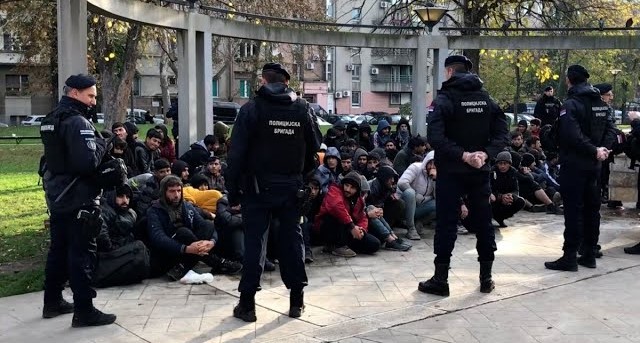Topic
| UNHCR | Topic | Member states | Links and documents | Contact |
|---|
Preventing exploitation and abuse of refugees in transit
Preventing exploitation and abuse of refugees in transit
The movement of refugees from conflict zones to host countries is a process that, while often a necessary escape from violence and persecution, carries numerous risks for those involved. Refugees in transit are particularly vulnerable to exploitation, abuse, and human trafficking, whether they are traveling by land, sea, or air. These vulnerabilities are increased by irregular migration routes, weak legal protections, and the absence of coordinated international efforts.
Exploitation and Human Trafficking - Refugees, particularly women, children, and those fleeing conflict, are prime targets for traffickers and smugglers. They may be subjected to forced labour, sexual violence, or coercive smuggling networks during their journey. Forms of exploitation include:
- Sexual violence and abuse: Women are particularly at risk, often subjected to sexual violence, forced prostitution, and trafficking for sexual exploitation. These abuses are especially prevalent in refugee camps or on migration routes with minimal oversight.
- Forced labor: Refugees are often forced into labor, including domestic work, agriculture, and factory jobs, under abusive conditions. Traffickers may use the promise of work in a safe destination as a means of control, leading to situations of bonded labor or enslavement.
- Criminal (smuggling) networks: The criminal networks involved are sophisticated and well-organized, constantly changing routes and methods to avoid detection and maximize profits. Migrants are left with no choice but to risk their lives by using the perilous and unsafe transport options provided by these smuggling networks, therefore heightening the risk of abuse and exploitation.
Limited Access to Services - Refugees in transit often lack access to basic humanitarian aid, such as food, water, shelter, and medical care, leaving them vulnerable to physical harm and exploitation by unscrupulous actors.
- Inadequate humanitarian aid: Refugees in transit often face scarce or misdirected assistance, forcing them to rely on criminal groups for resources, leading to further exploitation.
- Health risks: Lack of medical care exposes refugees to disease, injury, and mental health issues. Dangerous conditions, such as overcrowded shelters, harsh weather, and unsafe transportation, increase their vulnerability, particularly in accessing reproductive health services, which puts women and girls at greater risk.
Weak Enforcement of Refugee Protections - While international agreements like the 1951 Refugee Convention guarantee refugees' rights, enforcement of these protections is inconsistent. Many countries prioritize security concerns over humanitarian protection, leading to violations such as refoulement (forcible return to unsafe countries). Key enforcement challenges include:
- Refoulement: Refugees are sometimes forcibly returned to dangerous countries, violating international law, particularly at border regions where asylum procedures are ignored.
- Arbitrary detention: Refugees may be detained indefinitely in poor conditions without legal access or asylum opportunities, often in for-profit facilities.
The international community has a collective responsibility to prevent the exploitation and abuse of refugees in transit. By enhancing legal protections, improving border management, and ensuring that all refugees have access to basic rights and services, we can safeguard their dignity and security. Addressing these issues not only upholds international law but also ensures that refugees are treated with the compassion and protection they deserve as they seek safety and a better future.

1. What measures can the international community take to strengthen legal frameworks and border security to prevent traffickers and smugglers from exploiting vulnerable refugee populations?
2. How can humanitarian organizations and host countries improve access to essential services (food, water, shelter, and medical care) for refugees in transit, and what role do international bodies
play in ensuring that aid reaches those who are most at risk of exploitation?
3. How can countries balance security concerns with the enforcement of refugee protections to prevent refoulement and arbitrary detention?
